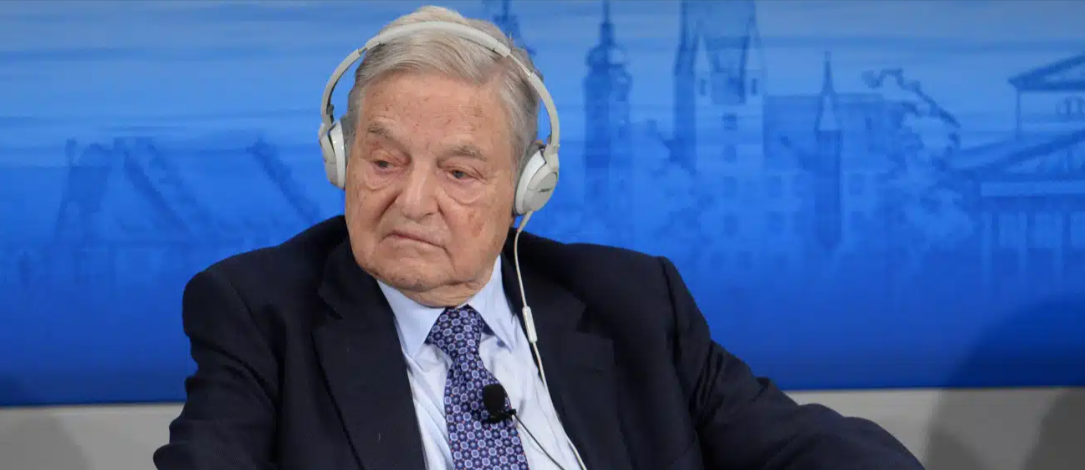Indian Authorities Raid Soros-Backed Organizations

India's Enforcement Directorate (ED) conducted searches at eight different locations in Bengaluru on Tuesday as part of an ongoing probe into foreign exchange violations linked to the Open Society Foundations (OSF), an organization established by American billionaire George Soros, and its investment subsidiary, the Soros Economic Development Fund (SEDF).
According to sources cited by Indian media, the raids were “carried out under the Foreign Exchange Management Act (FEMA) and involve the OSF along with various international human rights organizations,” as reported by The Economic Times.
The investigation is focused on allegations that OSF facilitated foreign direct investment (FDI), with claims that some recipients misused these funds in contravention of FEMA regulations.
An unnamed officer stated, “Our teams carried out raids at eight locations on Tuesday in Bengaluru to investigate contraventions in foreign direct investment rules by SEDF and OSF in investments in various entities/individuals in India and subsequent utilization of those funds,” according to the Hindustan Times.
Reports indicate that OSF, with backing from Soros, has transferred close to $3 billion to multiple entities across India.
The officer further noted that a “preliminary investigation has revealed that OSF was put under the prior reference category by the Ministry of Home Affairs (MHA) in 2016, thereby restricting it from giving unregulated donations to NGOs in India.”
“However, in order to bypass this restriction, OSF set up subsidiaries in India and brought in funds in the form of FDI and consultancy fees, and these funds have been used to fund activities of the NGOs which is a FEMA contravention,” the officer elaborated.
As per reports from The Times, OSF began its operations in India, the world’s largest democracy, in 1999. However, the Soros-founded entity does not maintain any physical offices within the country.
Meanwhile, in the United States, the Federal Communications Commission (FCC), under the Biden administration, moved swiftly in November to approve a deal permitting Soros to acquire a significant stake in over 200 radio stations.
At the time, Fox News reported that the House Oversight Committee launched an investigation, citing concerns about potential “politicization” and its implications for the 2024 presidential election.
The FCC’s decision to greenlight Soros’ acquisition of more than 200 Audacy radio stations met resistance from a Republican commissioner and several GOP members of Congress, who criticized the move as overtly partisan.
Fox News noted that the FCC “adopted an order to approve Soros’ purchase of more than 200 radio stations in 40 markets just weeks before the presidential election,” potentially allowing him to reach up to 165 million Americans.
House Oversight Committee Chairman James Comer (R-Ky.) and Rep. Nick Langworthy (R-N.Y.) argued that the FCC had expedited its review of broadcast licenses, bypassing established protocols.
Audacy Inc., which operates over 200 radio stations, was subject to a Chapter 11 reorganization, during which Soros sought to acquire $415 million in debt, Fox reported.
In late February, FCC Chairman Brendan Carr provided updates on the agency’s inquiry into Soros’ influence over local radio stations during a meeting with Republican lawmakers. Carr met with the Republican Study Committee, which consists of 175 House Republicans, at their annual closed-door luncheon.
A source told Fox News that Carr was set to brief lawmakers on the rapid approval of the radio station purchase and discuss broader strategies to counter left-wing media influence.
The GOP congressional probe has primarily focused on the involvement of Soros Fund Management in the transaction. The firm holds a substantial percentage of foreign ownership, raising concerns about the potential for foreign entities to exert influence over the American public through station content.
“The FCC is not following its normal process for reviewing a transaction,” Carr stated last fall regarding the sale.
“We have established over a number of years one way in which you can get approval from the FCC when you have an excess of 25 percent foreign ownership, which this transaction does,” Carr added. “It seems to me that the FCC is poised to create, for the first time, an entirely new shortcut.”